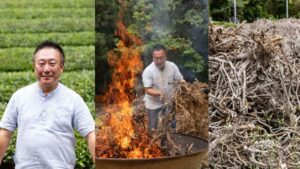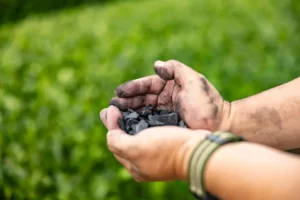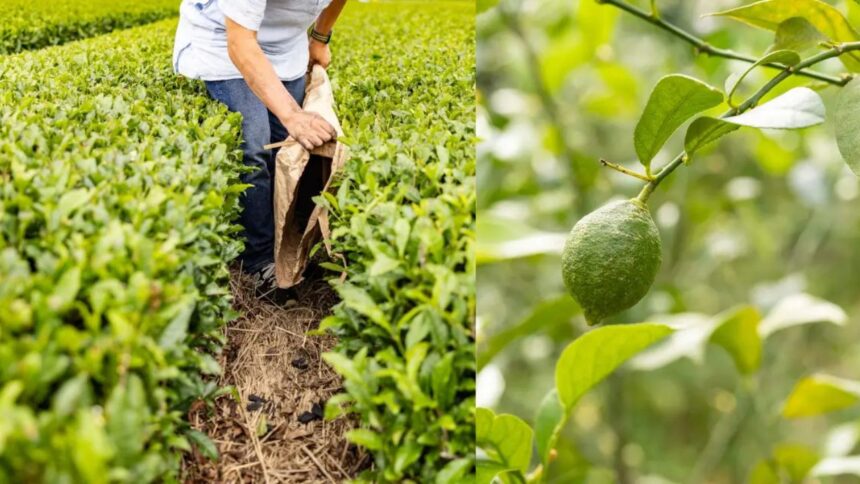NewzVille Exclusive
To address the climate-change issue experiments are underway across Japan to create sustainable communities and revive local agriculture. One such solution tabled by the Agri based Company SynCom Agritech of Japan. Here is the story of ‘Tea to Lemon’.
The soil of Makinohara Plateau in central Shizuoka Prefecture is weakly acidic and rocky. The Plateau has good drainage system, while its climate is warm with many hours of sunlight. These conditions have made Makinohara one of Japan’s prominent tea-producing areas, renowned as a source of quality tea since 19th century.
But stagnating tea prices, soaring processing costs, and the overall aging of the population have driven many farmers out of the tea industry. Once around 2100 hectares of land used for tea cultivation in 2015, came down to only 1000 hectares now.
The city of Makinohara launched the “Organic Makinohara Promotion Project” in 2022 aiming to stabilize agricultural operations by promoting “environmentally conscious farming” and “revenue generation from abandoned farmland,” as well as to “create new industries rooted in agriculture.”
An initiative is currently underway to reutilize fallow tea fields after improving their soil with charcoal.

Eiji Yamamura, CEO of SynCom Agritech says, “Tea bushes love nitrogen, so growing quality tea requires a lot of nitrogenous fertilizer. However, this nitrogen makes the soil acidic, so to produce other crops, you need to make the soil more alkaline again. Adding charcoal is one way to adjust the pH of acidic soil.”

Charcoal is a porous material, riddled with countless tiny holes. The microorganisms that live in these pores help make the soil more fertile. Turning tea bushes into charcoal also locks up the carbon in the wood, and storing this in the soil reduces the amount of CO2 released into the atmosphere.
Producers in Makinohara have begun cultivating a new crop to join tea as one of the region’s local specialties: lemons. Here, too, charcoal helps improve the soil and aid the shift from tea fields to lemon groves, and creating carbon credits from these groves is another long-term goal.
Growing lemons is easier for older farmers in several ways. First, they can be cultivated alongside tea, since the harvest seasons of the two crops do not overlap. Second, lemons have a long harvest season, lasting from November to February, so they can be harvested at a leisurely pace. Third, because lemons do not attract insects, they do not need to be sprayed with insecticide.





